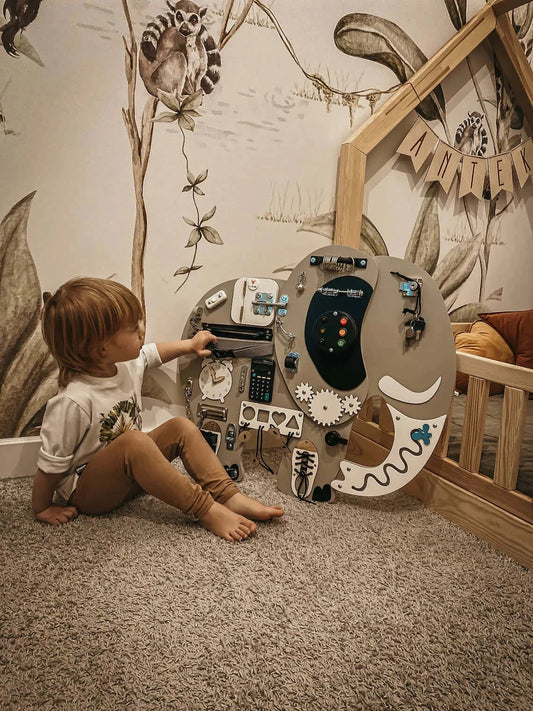The Montessori method is an educational approach that enjoys worldwide recognition and popularity. Developed by Dr. Maria Montessori, an Italian physician and educator, this method aims to promote the natural development and individual learning of each child. But what exactly is behind this concept, and why do so many parents and teachers choose it? In this guide, we would like to introduce you to the basic principles and benefits of Montessori education.
The basic principles of the Montessori method
-
Independent Learning: Montessori education promotes children's independence. Instead of passively absorbing information, children are encouraged to actively learn and explore their environment. This is achieved through specially designed materials that support and stimulate the learning process.
-
Individual Learning Pace Every child is unique and learns at their own pace. In Montessori classrooms, there are no fixed curricula or strict time constraints. Children can take the time they need to fully understand and internalize a concept.
-
Prepared environment The learning environment is a central aspect of the Montessori method. It is designed to meet the needs and interests of the children and provide them with the opportunity to work independently. All materials are easily accessible and placed at the children's eye level.
-
Learning companions rather than teachers . In Montessori education, teachers act more as learning companions or mentors. They observe the children, offer support, and intervene only when necessary. This role fosters children's confidence in their own abilities.
-
Freedom within clear boundaries. Children have the freedom to choose their activities and organize their time independently, but within clear, respectful boundaries. This structure helps children take responsibility and develop an awareness of the consequences of their actions.
Advantages of Montessori education
- Promoting independence : Children learn to solve problems and make decisions independently, which strengthens their self-confidence and independence.
- Individual support : Each child is seen as an individual and supported according to his or her strengths and interests.
- Creativity and curiosity : The freedom to explore the environment and pursue one's own interests encourages children's natural curiosity and creativity.
- Social skills : By working in mixed-age groups, children learn from each other and develop social skills such as empathy, cooperation and conflict resolution.
- Joy of learning : The playful and self-directed approach awakens the joy of learning and maintains it in the long term.
How to implement Montessori at home
- Create a prepared environment : Set up a space specifically for learning and discovery. Provide materials that pique your child's interest.
- Promote independence : Let your child do simple household tasks that are appropriate to his or her age and abilities.
- Observe and support : Be a careful observer and offer support without overtaxing. Let your child have their own experiences and learn from them.
- Offer freedom and structure : Give your child the freedom to make their own decisions, but also set clear and respectful boundaries.
The Montessori method offers a valuable alternative to traditional parenting and educational approaches. It places the child at the center and promotes their holistic development. If you'd like to learn more about Montessori or consider incorporating this method into your home, we invite you to explore our other blog posts and resources on this topic.






